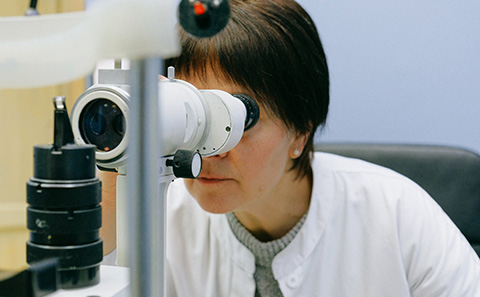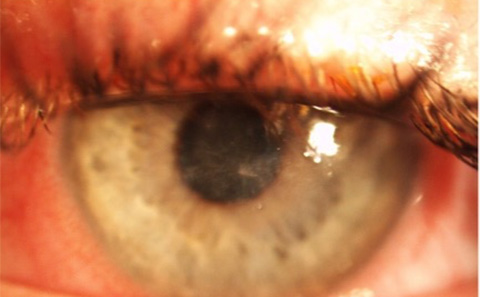
University of Southampton researchers have played a key role in the trial of a potential new treatment for a severe eye disease.
Acanthamoeba keratitis (AK) is a rare parasitic infectious disease of the eye, most frequently affecting individuals who wear disposable contact lenses. It causes the front surface of the eye, the cornea, to become painful and inflamed due to infection by Acanthamoeba - a cyst-forming microorganism. If not treated promptly, it can lead to visual impairment and even blindness.
Professor John Dart, from UCL Institute of Ophthalmology and Moorfields Eye Hospital NHS Foundation Trust, who led the research said: "Acanthamoeba keratitis in contact lens users can be prevented by following safe use advice. Unfortunately, when the disease does develop the course is prolonged and, in the recent past, one third of patients have had poor visual outcomes with one quarter requiring surgery at some stage."
AK is currently treated with two separate eye drops of medications called polihexanide (PHMB) and propamidine. A randomised control trial, led by Moorfields Eye Hospital NHS Foundation Trust and involving researchers from the University of Southampton's Faculty of Medicine, tested using a single eye drop of a higher dose of PHMB, compared to the dual treatment.
The study involved the analysis of 127 people being treated for AK at six hospitals across Europe (in England, Italy and Poland). Approximately 87% of patients in both groups recovered from AK within a year, giving hope to patients that a single medication may be as effective as the widely used combination therapy.

The Southampton team were responsible for the trial protocol and recruiting patients to the UK arm of the study through the NIHR Southampton Clinical Research Facility.
Parwez Hossain, Associate Professor in Ophthalmology who was involved in the study, said: "As AK is a rare disease it has been a challenge to evaluate the best treatment, however, these findings show that a simpler treatment approach with a single but slightly higher dose of PHMB can be just as effective as the dual therapy. This could pave the way for more accessible treatments for this debilitating eye condition."
The researchers say that the dual therapy was more effective than usual in this trial because clinicians were strictly following a set treatment protocol. In addition, the new single drop treatment has advantages over dual therapy, as the simplicity reduces the risk of errors in practice.
Professor Dart explained: "PHMB 0.02% is an effective and widely recommended unlicensed therapy, but many clinicians have trouble accessing it, mistakes in formulation can sometimes lead to poor results, and the lack of a proven treatment protocol has resulted in wide variations in how the drug is used and in treatment outcomes. We hope that our new robust findings with polihexanide 0.08% will be a game changer for AK treatment, by improving access and the consistency of treatment, addressing currently unmet patient needs."
The study has been published in the journal Ophthalmology.






